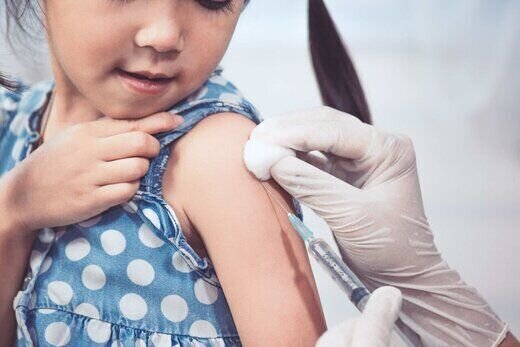230,000 foreign nationals vaccinated against measles

TEHRAN – The measles vaccination program has so far inoculated 230,000 foreign nationals, given the surge in the disease infection in the neighboring country, Mohsen Zahraei, head of the department of preventable diseases with vaccines of the Ministry of Health, said.
Concerns about the spread of measles in the country are growing as the Afghan population grows, so the measles vaccination operation for non-Iranian people, including Afghans, was put on the agenda and implemented, he noted.
Measles mostly infects children under the age of 10, and all families need to get their children vaccinated between the ages of 12 to 18 months, he said, adding that vaccination will be free of charge.
The measles vaccination program in Iran started in 1984 when 34 percent of the population was vaccinated in the first year and 90 to 95 percent of the population after 6 years. Also in 2003, 33 million people were vaccinated with a national program to eradicate measles in the country.
In 2019, the World Health Organization approved the elimination of measles and rubella in Iran. Then it was managed to minimize the measles incidence rate in three years and increase vaccination coverage to 95 to 98 percent. In 2019, the World Health Organization approved the elimination of measles and rubella in Iran.
In the Eastern Mediterranean region, among the 22 countries, only three countries of Bahrain, Oman, and Iran, have succeeded in receiving this approval, which is a sign of health indicators promotion that plays an important role in tourist arrivals and the development process.
However, there is a measles outbreak in Afghanistan, Pakistan, and Iraq.
“We have stepped up our efforts to maintain the achievement of measles elimination by identifying 3,000 cases of suspected measles in one month, and by early last week, 120 positive cases of measles had been recorded, which is also increasing.
Some 64 percent of the infected people are Afghans, 3 percent are Pakistanis and the rest are Iranians. The disease causes severe symptoms in people with malnutrition, including blindness, pneumonia, and brain infection.
The disease is much more contagious than coronavirus, and kills one to five percent of the patients,” Zahraei said on May 9.
Measles is a highly contagious, serious disease caused by a virus. Before the introduction of the measles vaccine in 1963 and widespread vaccination, major epidemics occurred approximately every 2–3 years and measles caused an estimated 2.6 million deaths each year.
More than 140,000 people died from measles in 2018 – mostly children under the age of 5 years, despite the availability of a safe and effective vaccine.
Measles is caused by a virus in the paramyxovirus family and it is normally passed through direct contact and through the air. The virus infects the respiratory tract, then spreads throughout the body. Measles is a human disease and is not known to occur in animals.
FB/MG
Leave a Comment